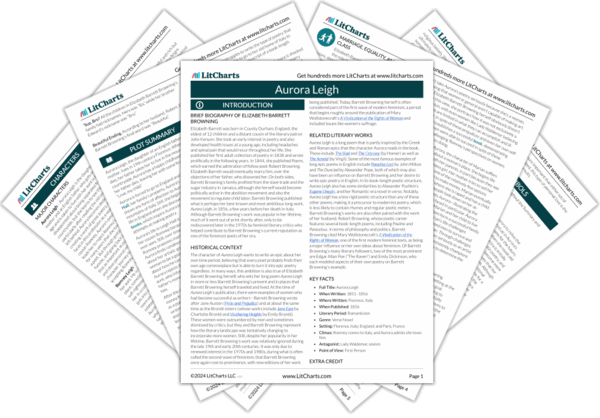Although Romney likes making outward signs of his own generosity, like marrying Marian, who is socially “beneath” him, this passage shows that he is not fully willing to leave behind the customs of upper-class society, still afraid of doing anything that might cause a scandal. Lady Waldemar’s willingness to lie even about small things like knowing Aurora shows how she will stop at nothing to achieve her goals and doesn’t care about her methods. This makes her very different from Aurora, who does things like refusing money from Romney solely on the principle of the matter.
